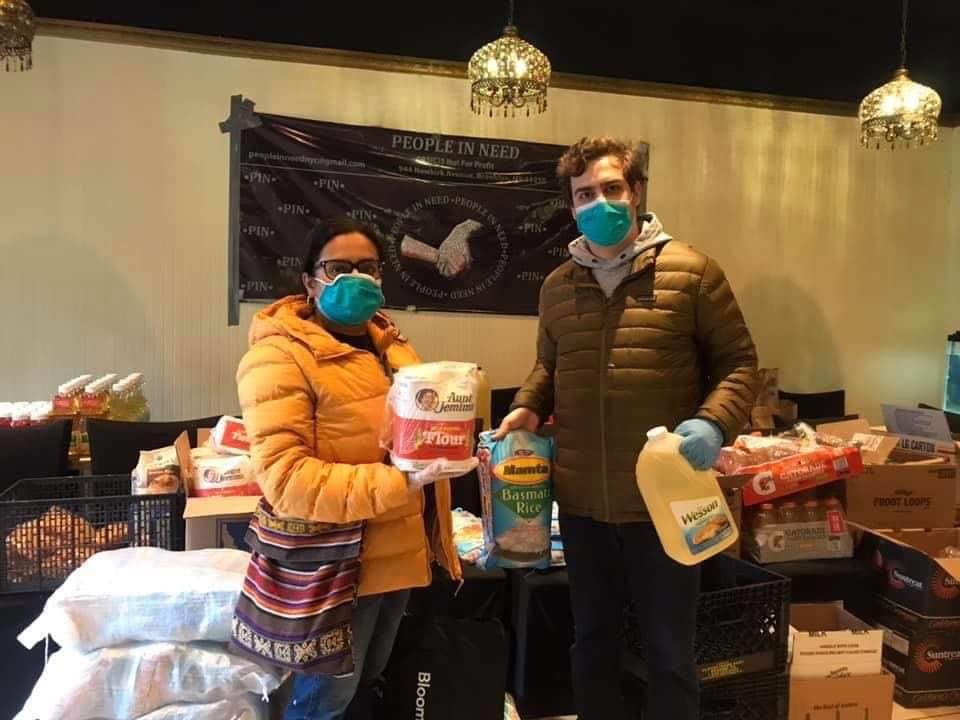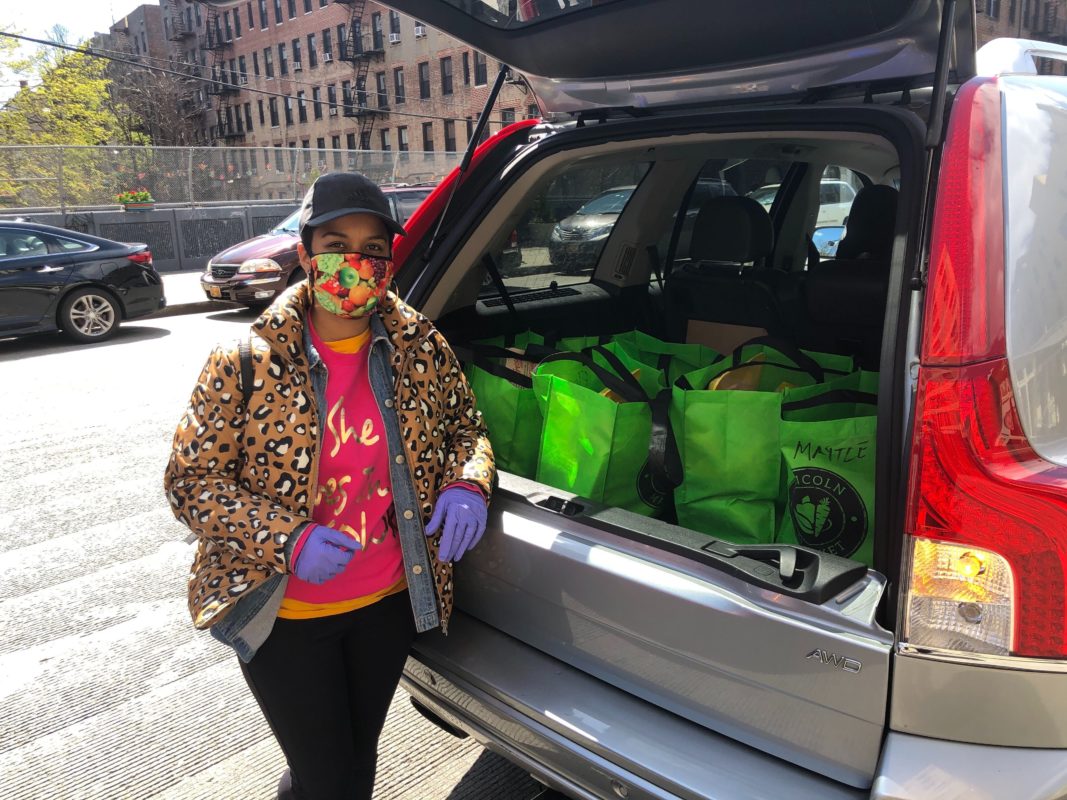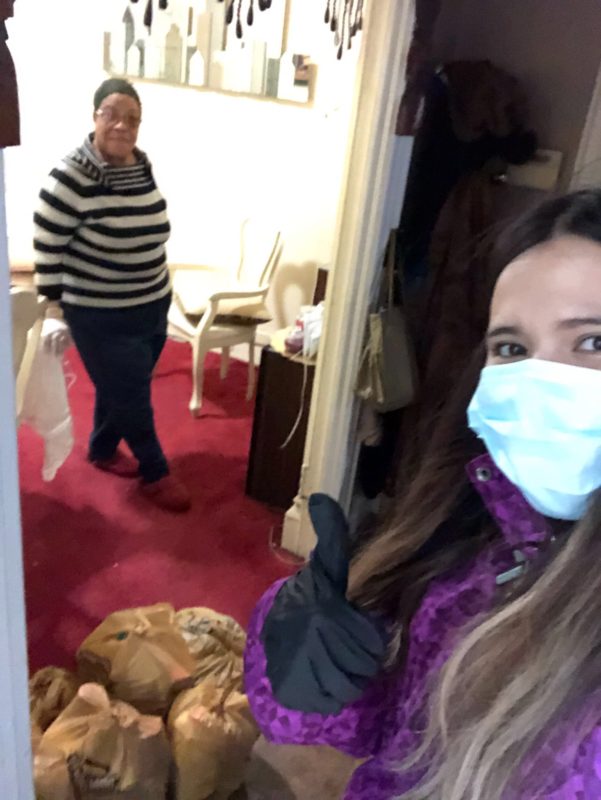Solidarity, Not Charity – Flatbush United Mutual Aid


New mutual aid groups, grassroots organizations that operate on the idea that communities can and should care for one another out of solidarity, have been springing up all around Brooklyn since the early days of COVID-19. One of these groups, Flatbush United Mutual Aid, is a network of neighbors spread out over the greater Flatbush neighborhood, working in collaboration with community-based organizations like Nowshin Ali’s People in Need to provide as many people as possible with necessities like food. Their philosophy? Solidarity — not charity.
The group, which launched just over a month ago, operates similarly to other mutual aid groups like #bedstuystrong – it is staffed entirely by volunteers, most of whom come from the community they serve. And, like other mutual aid groups, Flatbush United takes care to distinguish itself from a charity – the people providing aid are other members of the group, and there is no sense of hierarchy: everyone has equal input into the group, and can step up to volunteer in ways that are best suited to their skills and interests. If someone wants to work entirely from home, they can sign up to work as an intake volunteer, and if they’re comfortable leaving their home, they might consider doing deliveries.
“There’s this idea that when we are in this group that we are represented, and we are representing those around us,” admin volunteer Tammie David told us. “This crisis has brought about a mutual feeling of fear and sadness and worry, and it feels really good to be able to connect with people, and kind of empathize in some kind of struggle or solidarity. And the idea of mutual aid that I really like is, we’re all taking care of each other, right?”

One key difference between Flatbush United and other groups is the fact that, while some allow recipients to pay for their requested items via PayPal or Venmo, recipients of Flatbush United — many of whom are elderly, immunocompromised, or are struggling financially — do not have to pay for anything at all; their food, or supplies, or anything else they might request is funded by contributions from the community, 100% of which go directly to purchasing requested items. And, while recipients are more than welcome to give donations if they’re inclined, it’s never a requirement, intake admin Laura Jean-Jacques explained.
What is now known as Flatbush United Mutual Aid started out as two community Facebook groups, two Slacks, and a Google Sheet, group member Virginia Bechtold said, all of which were launched by Flatbush residents who wanted to serve their community’s needs. Bechtold, a long-time organizer for Prospect-Lefferts Garden Neighborhood Association (PLGNA), brought together the administrators of these different efforts, all of whom, after some discussion, chose to join efforts so that could help people in different corners of Flatbush and the surrounding neighborhoods.
“We’ve been trying to not reinvent the wheel,” Bechtold said, focusing on supporting and amplifying the local groups already doing valuable work in the community, providing the organizations in their network with volunteers.

While they are based in Flatbush, Bechtold said, they’re also accepting requests from people in Canarsie, Flatlands, and East New York. “It’s mind-blowing how much geographical area we’re covering,” Bechtold said.
Bechtold’s hope, she said, is that Flatbush United Mutual Aid can continue helping people even after the pandemic is over.
“The pandemic has revealed and exacerbated gaping yawns in services, and in leadership, that existed before the crisis, and will certainly persist after,” Bechtold said. “If a bunch of strangers can pull together and get a huge effort like this off the ground under pressure in a short amount of time, who knows what else we can accomplish?”
The group makes painstaking efforts to preserve the anonymity of the community members who request aid, Jean-Jacques explained. When someone calls to make a request, their name and phone number auto-populate in an app called AirTable, which assigns a unique code number that admins can use to track whether the request has been fulfilled. The group never stores addresses after the request is fulfilled. The recipient can also request a contact-free delivery, in which the volunteer would leave the requested items at a designated location.
While so many Brooklyners have lost people close to them due to COVID-19, Jean-Jacques said, working with Flatbush United has given her something to feel positive about. “What’s rewarding is just knowing that hope is alive,” she said.
Join Flatbush United Mutual Aid’s Facebook group here.
The article has been updated to more clearly explain Virginia Bechtold’s involvement with Flatbush United Mutual Aid and how the group chose to join efforts.




